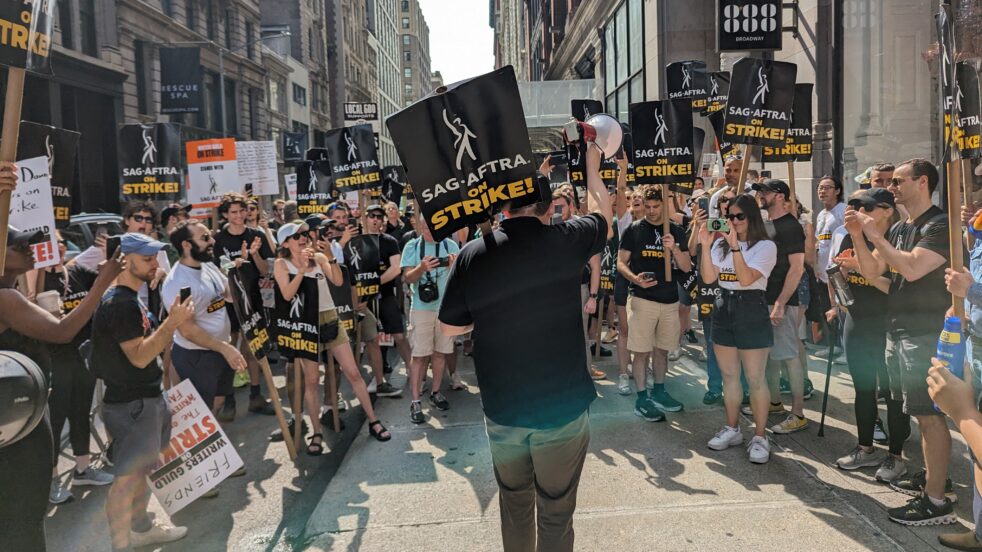On Friday, July 14, the Screen Actors Guild and American Federation of Television and Radio Artists (SAG-AFTRA) members went on strike over contract and labor disputes with the Alliance of Motion Picture and Television Producers (AMPTP).
SAG-AFTRA is a labor union representing about 160,000 actors, singers, recording artists, stunt performers, DJs and many more branches of Hollywood, headed by Fran Drescher, former actress and current president of the union.
AMPTP is a trade association that negotiates all guild and union contracts across the industry. Members include major motion picture studios like Warner Brothers and Walt Disney, as well as broadcast television networks and streaming services such as NBC, Netflix and Amazon.
SAG-AFTRA had been negotiating with AMPTP since Friday, July 7, as the contract the two organizations had was bound to expire. Their board members were negotiating for better compensation and benefits, less demanding self-taped audition requirements and protections for members against the rise of artificial intelligence.
In their list of grievances, SAG-AFTRA primarily wanted a third party to evaluate the success of productions and for residuals to be paid according to talent. Residuals are payments that actors acquire in the long-run following a movie or TV program’s initial release due to re-runs. While announcing the strike, Drescher admonished production companies for refusing to compromise.
“They plead poverty, that they’re losing money left and right when giving hundreds of millions of dollars to their
CEOs,” said Drescher.
Many B-list celebrities claim that when their shows had reruns on cable, they would get paid thousands of dollars in residuals, but when their shows moved to streaming platforms like Netflix, they received as little as almost $7.
SAG-AFTRA isn’t the only Hollywood union on strike. For the first time in 63 years, they are picketing at the same time as the Writers Guild Association (WGA). With both writers discontinuing scripting and actors discontinuing acting, Hollywood is frozen in place.
The consequences of the strikes are already visible. All late-night shows such as “Jimmy Kimmel Live!” and “The Tonight Show Starring Jimmy Fallon” have gone dark. Release dates for TV shows such as “Stranger Things” and “Euphoria” have been postponed indefinitely as well. Movies in production like “Deadpool 3” have halted and all award shows have been canceled. Production companies have low savings because of the work stoppage.
With no side willing to compromise on their requirements, the unrest is projected to continue well into September, as union members continue to donate money and picket.
A-list celebrities like Jane Fonda, Adam Sandler, Colin Farrel and Daniel Radcliffe were all seen picketing in support of the union.
Performers can still work on projects not under AMPTP, however, all companies deemed struck by SAG-AFTRA are forbidden. Breaking the rules of the strike is often called scabbing or crossing the picket line and can result in the removal of the member from the union.
Srihita Ayinala, third-year CS, talked about how frustrating it was to have to wait even longer for new releases.
“In no way am I blaming the strikers because I think they’re doing what needs to be done, and they have to follow a certain set of rules. I’m just upset because the entertainment industry is a huge part of my life and having to wait longer for shows just because people can’t compromise on anything is a little frustrating,” she said.
As of today, SAG-AFTRA and AMPTP negotiations are paused, and it could be a long time before they reach a resolution.
Drescher clarified to the public that SAG-AFTRA members were a united front, and until companies came back to the table to reasonably negotiate, they would continue to picket across the nation.
Until then, it is unlikely that Hollywood will continue to churn out material for viewers to enjoy across their TV screens.
